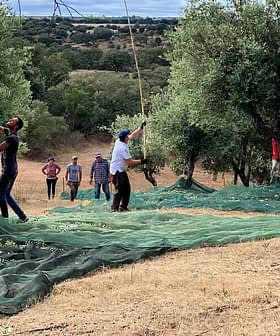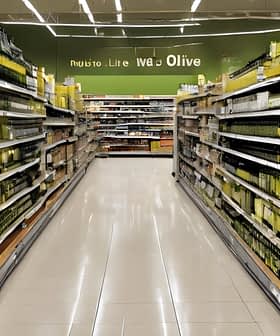High Fail Rate in Czech Republic Quality Checks
An inspection campaign in the Czech Republic found that nearly half of the olive oil samples tested did not meet European quality standards and labeling requirements, with eight out of 18 samples being non-compliant. The highest level of labeling nonconformity was found among extra virgin olive oil brands in non-producer countries, while nearly one-quarter of other olive oil grade samples analyzed failed to meet quality and purity requirements.
An inspection campaign in the Czech Republic by the State Agricultural and Food Inspection Authority (SZPI) found issues with nearly half of the olive oil samples tested.
The small-scale testing ensured that various countries’ extra virgin and virgin olive oils met European quality standards and labeling requirements.
The results were alarming: eight of 18 samples were non-compliant. Seven of these samples were not extra virgin olive oil as claimed on the packaging but were of a lower grade. Additionally, one sample had other labeling deficiencies.
See Also:An Accusation of Widespread Fraud Sparks Controversy in SpainThe non-compliant samples originated from Spain, Greece and Tunisia. SZPI has informed the authorities in these countries about the findings and ordered sellers to withdraw the implicated batches from the market. The agency will also initiate administrative proceedings in the form of fines.
This inspection campaign is part of SZPI’s ongoing efforts to ensure food safety compliance with European standards. In 2023, 67 percent of the evaluated olive oil samples failed the inspection, indicating a slight improvement in compliance rates this year.
The Czech Republic, home to nearly 11 million people, does not produce olive oil. According to International Olive Council data, the country consumed 2,800 metric tons in the 2023/24 crop year, the lowest total since 2003/04.
In 2023, the last year for which a complete dataset is available, the European Union conducted 4,357 label checks, identifying 724 olive oils that did not conform to E.U. requirements.
The highest level of labeling nonconformity was found among extra virgin olive oil brands in non-producer countries, with 124 of 472 samples failing to comply with E.U. marketing standards that ensure correct naming, origin indication and storage information.
See Also:Adulterated Olive Oil Kindles Debate Over Testing in Northern CyprusExtra virgin olive oils from producer countries had a far lower level of nonconformity – 492 of 3,299 samples – while other olive oil grades from producer and nonproducer countries did not conform in 18 percent of cases.
The E.U. also performed 3,023 category checks, identifying 1,030 samples that did not conform with the category.
Category checks ensure that olive oil meets the quality requirements for its grade and determine purity. The E.U. uses category checks to identify cases of fraud. Serious irregularities during these checks may result in the withdrawal of the product from the market, fines on producers or distributors and prosecution in the most extreme cases.
European authorities found that 37 percent of extra virgin olive oil samples from producer and nonproducer countries violated E.U. rules. Producer countries were responsible for 743 violations from 2,036 samples, while non-producer countries had 125 violations from 336 samples.
Nearly one-quarter of other olive oil grade samples analyzed by the E.U. failed to meet quality and purity requirements, with authorities flagging 162 of 651 samples.







